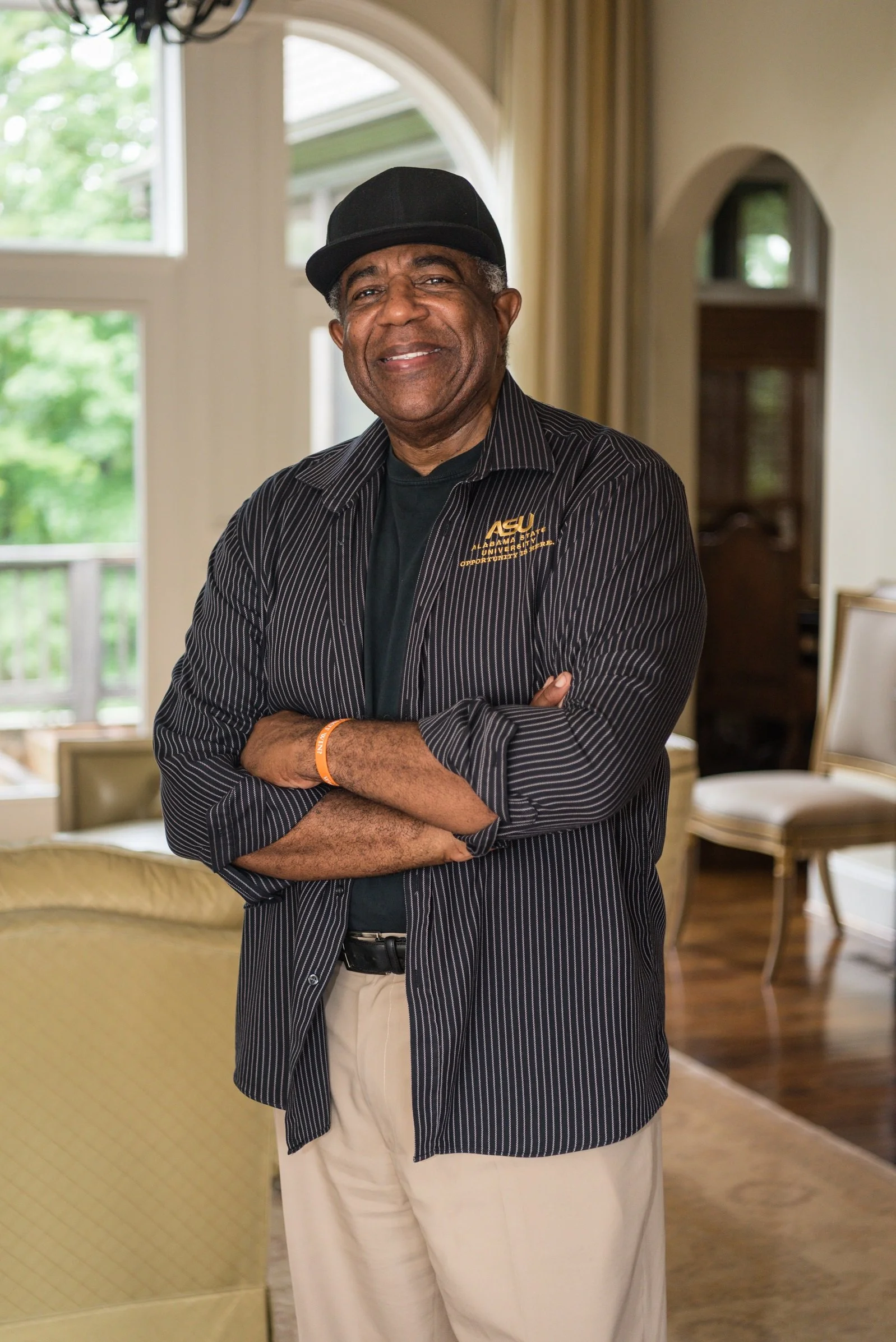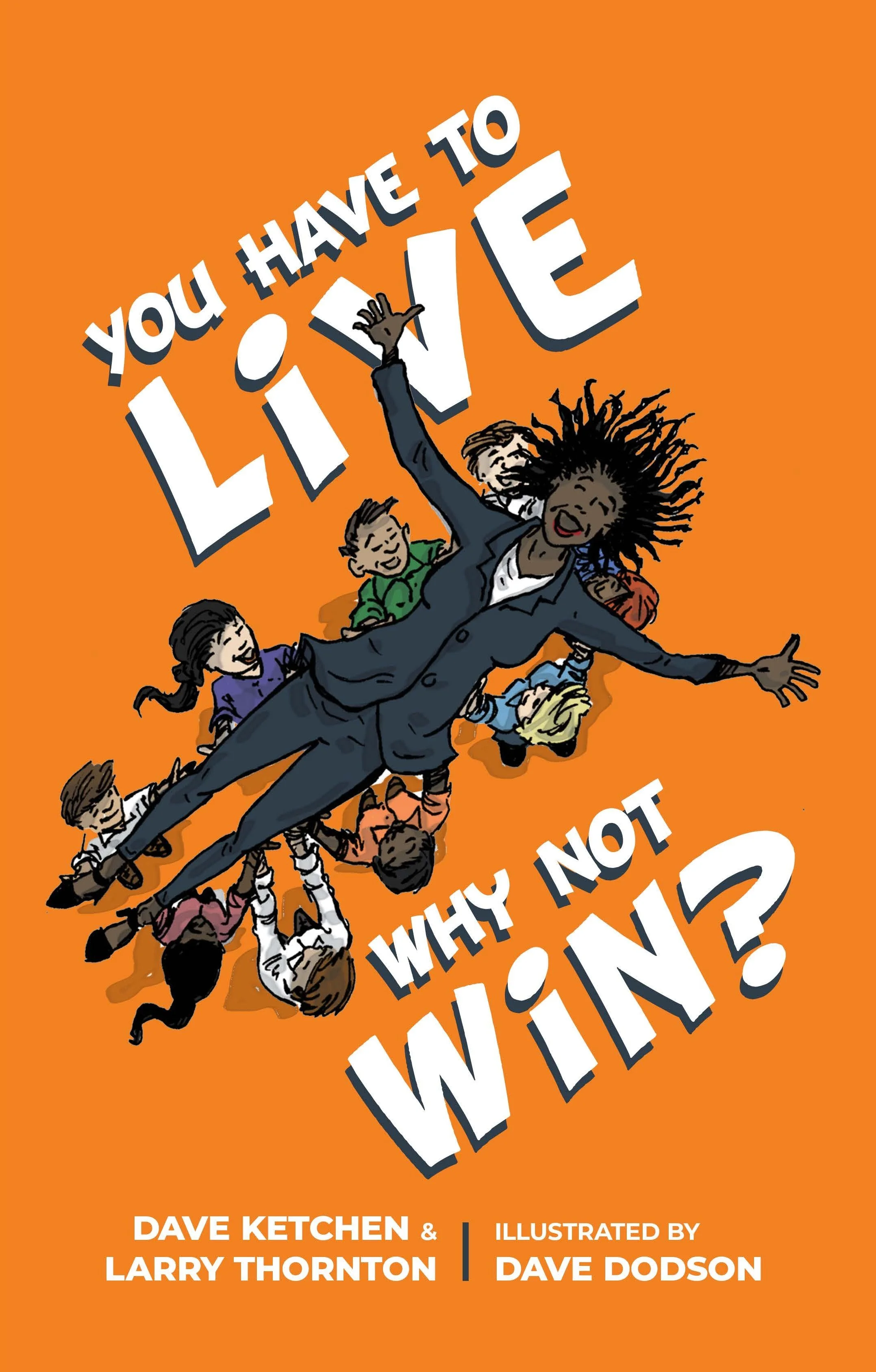You Have to Live, Why Not Win? by Dave Ketchen
/Larry Thornton grew up poor and Black in Alabama in the 1960s. Like so many children of color during the Jim Crow era, his future looked bleak.
But today, Larry owns seven McDonald’s restaurants, serves on multiple corporate boards of directors, and is a renowned artist whose work is owned by luminaries such as Oprah Winfrey and Condoleezza Rice.
By what magic did Larry’s transformation into an accomplished entrepreneur and respected business leader occur? In truth, there is nothing mysterious about Larry’s success. It was earned through hard work and building relationships with other people. It’s a simple formula, but so powerful. Larry has made it his mission to help others realize the value of his motto “work hard, relate hard.”
In 2019, Larry wrote an autobiography titled Why Not Win? that captured his hard-earned life lessons for winning in life. Soon a charitable foundation dubbed the Why Not Win Institute was born in order to share these lessons with audiences. With the book as a resource, Larry began speaking at universities and corporations about his journey. But something was missing.
Encouraged by his mentor Claude Nielsen, the chief executive officer of Coca-Cola United, Larry was determined to reach school-age children with his positive messaging. He realized, however, that his book might not be the best medium to do so. Like a Quintin Tarantino movie, the book jumps from time period to time period in a non-linear pattern. Younger minds might struggle to follow the narrative.
I persuaded Larry that a graphic novel could effectively fill this gap. I’d written three graphic novels for educational purposes and knew that a visually stimulating presentation could grab and hold youngsters’ interests. We enlisted an accomplished artist, Dave Dodson, to illustrate the book.
You Have to Live, Why Not Win? tracks Larry’s life from childhood to the present. The book is built around three pervasive themes in Larry’s life. Each theme starts with the letter P in order to help young people remember them.
First, people are the biggest key to winning in life. Your success depends on others and their success depends on you. As a result, the energy you invest in relationships pays tremendous dividends. Larry had many people who helped him along the way, including a farmer who made sure young Larry’s family had bread on their table, a McDonald’s franchisee who vouched for Larry with the corporation, and Claude Nielsen who taught Larry how to interpret financial reports.
No person had a bigger impact on Larry, however, than Miss Gladys Nichols, a white senior English teacher known as “Old Battle Axe” due to her demanding personality. One Saturday after he completed some yard work for Miss Nichols, she invited Larry through the front door of her home to enjoy lunch at her table. For a white person to take this step in 1960s Alabama was highly unusual.
Although Larry struggled in school, a recent B+ he earned on a book report led Miss Nichols to advise Larry to go to college. Larry was shocked — his name and college had never been mentioned in the same sentence before. But a seed had been planted in his mind that was destined to grow.
Second, perception shapes how people think and act. Larry was part of a small group of Black children who integrated the Montgomery city schools. These students were subjected to abuse by their white classmates who perceived the Black students to be inferior and not worthy of their school. Larry began to see himself as inferior and a downward spiral of perception began. But after that lunch with Miss Nichols, Larry started to view himself as valuable. His perception of himself was changing for the better. A few years later, Larry earned a college degree and followed Miss Nichols’ footsteps by becoming a high school teacher.
Third, perseverance is required to endure life’s inevitable obstacles and challenges. Larry likes to say, “If you can’t take anything, you can’t have anything.” Always taking the easy path and crumbling under adversity is not a recipe for winning. But if you can absorb life’s blows with a resolute smile, you’re on your way to winning in life.
Larry’s early experience with McDonald’s illustrates the importance of persistence. When Larry finished the training required to become a franchisee, just one roadblock stood between him and his dream of opening a store in Birmingham. A franchisee named Max owned dozens of McDonald’s in the area and he was determined that Larry would not compete with him. Max’s lobbying with corporate executives slowed Larry down, but eventually his first store was ready.
On opening day, Max and his partner brazenly walked behind the counter — Larry’s counter — and proclaimed that they’d own the store within six months. Larry endured this humiliation with grace but he was more focused on success than ever. In an ironic twist, as Larry’s success grew and Max approached retirement, Larry purchased five of Max’s stores.
Larry’s life has been sometimes agonizing, sometimes delightful, but it has never been boring. By building relationships with people, managing perceptions, and persevering in the face of adversity, Larry has won in life. Through this book, we hope to inspire young people to leverage the three Ps to win in life too.
You Have to Live, Why Not Win? is available here and all proceeds fund the Why Not Win Institute.
* * *
Dave Ketchen serves on the board of directors for the Why Not Win Institute. His professional position is the Harbert Eminent Scholar of Management within the Harbert College of Business at Auburn University. Learn more at whynotwin.org.















































